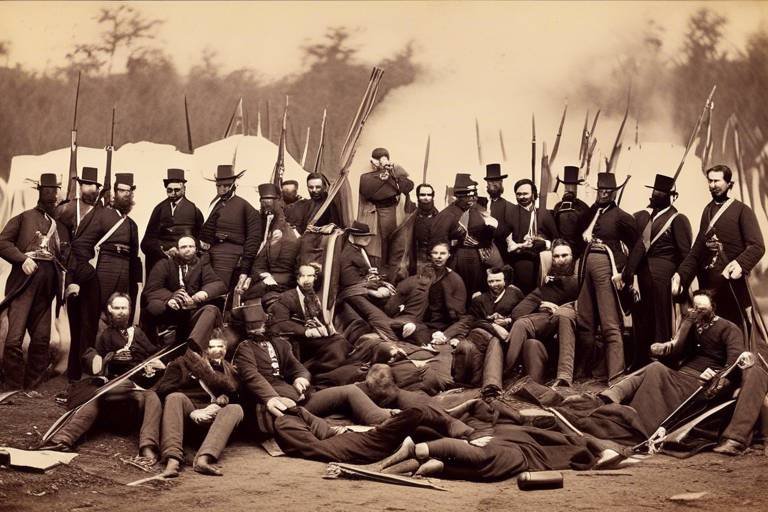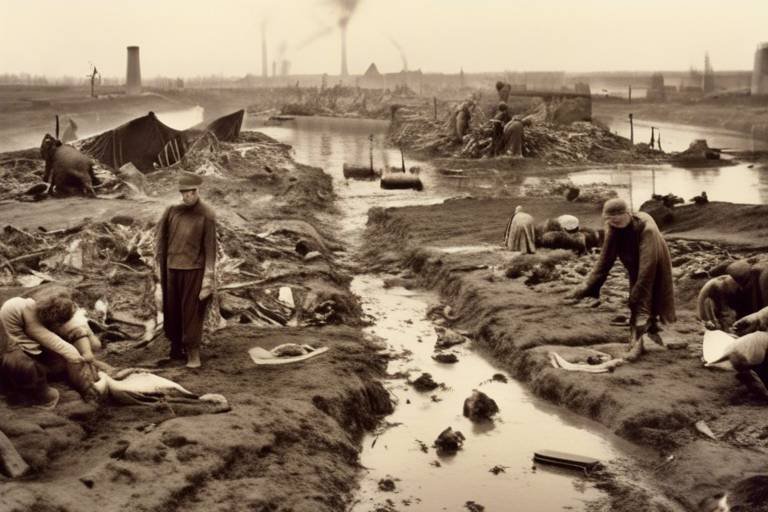The Legacy of the Byzantine Empire on Europe
The Byzantine Empire left an indelible mark on Europe, shaping the continent's culture, politics, and society in profound ways. From art and architecture to religion and military strategies, the Byzantine legacy continues to influence European history to this day.
One of the most significant aspects of the Byzantine legacy is its artistic influence. Byzantine art, known for its intricate mosaics and religious iconography, inspired artists across Europe, leaving a lasting impact on the development of Western artistic traditions.
Architecturally, the Byzantine Empire's achievements were groundbreaking. The iconic domed Hagia Sophia served as a model for churches and buildings throughout Europe, shaping the architectural landscape of the continent.
On the political front, the Byzantine Empire's administrative structure and governance practices set a precedent for European monarchies and states. The empire's influence played a crucial role in shaping political systems in medieval and early modern Europe.
Religiously, the Byzantine Empire's role as a center of Orthodox Christianity had a profound impact on the spread of Christianity in Europe. The empire's practices, beliefs, and rituals influenced religious life across the continent.
Economically, Byzantine trade networks and policies played a crucial role in shaping European commerce. The empire's impact on trade routes and economic exchanges contributed significantly to Europe's economic development.
Intellectually, Byzantine scholars were instrumental in preserving and transmitting ancient knowledge to Europe. Their efforts laid the groundwork for the Renaissance and the intellectual flourishing of the European Enlightenment.
Militarily, the Byzantine Empire's strategies and tactics, such as the use of Greek fire and defensive fortifications, influenced European military practices during the medieval period, leaving a lasting mark on warfare techniques.
Language and literature were also profoundly influenced by the Byzantine Empire. Byzantine Greek served as a literary and scholarly language in Europe, impacting the development of European languages and literature.
Lastly, the Byzantine Empire's position as a cultural crossroads between East and West facilitated rich exchanges between Europe, Asia, and Africa. This cultural interchange enriched and diversified European society, leaving a legacy of cultural vibrancy.
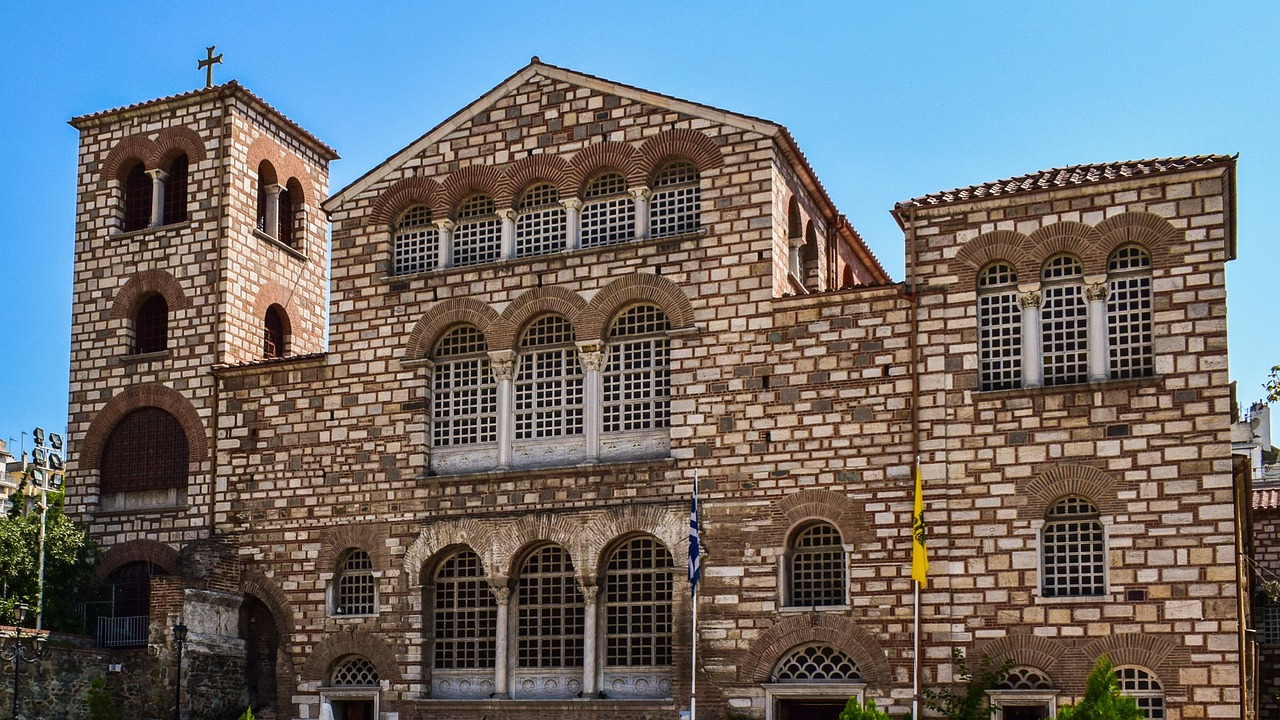
Artistic Influence
The artistic influence of the Byzantine Empire on Europe cannot be overstated. Byzantine art, with its intricate mosaics and rich religious iconography, served as a wellspring of inspiration for European artists across the Middle Ages and Renaissance periods. The artistry of Byzantine craftsmen found its way into the hearts and minds of European creatives, shaping the very essence of Western artistic traditions. The vivid colors, detailed patterns, and spiritual themes of Byzantine art left an indelible mark on European art, influencing everything from painting to sculpture.
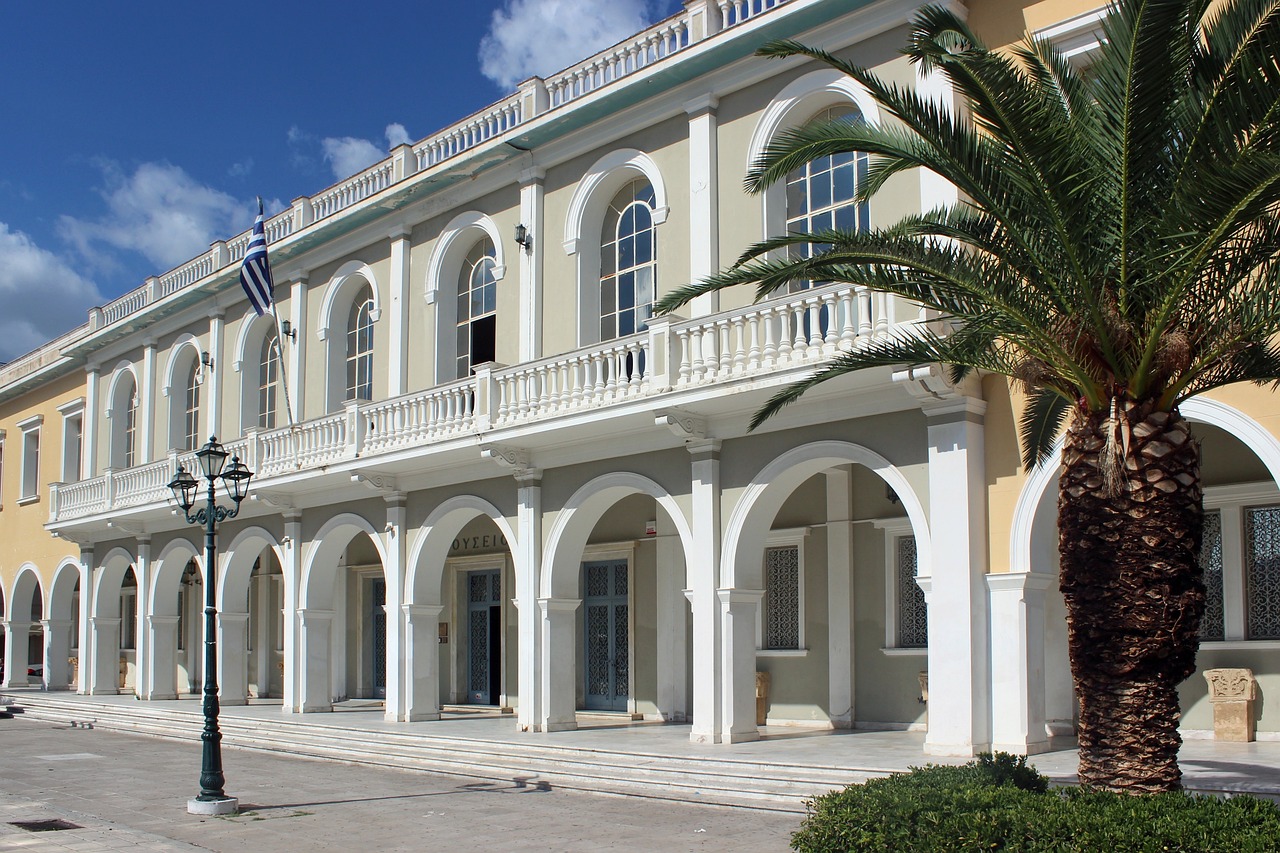
Architectural Achievements
The architectural achievements of the Byzantine Empire left an indelible mark on Europe, shaping the continent's landscape and influencing the design of churches and buildings for centuries to come. One of the most iconic architectural wonders of the Byzantine era is the Hagia Sophia, a masterpiece of engineering and design that featured a massive dome soaring above the central nave. This architectural marvel not only served as a place of worship but also as a symbol of the empire's grandeur and innovation.
The use of intricate mosaics and ornate decorations in Byzantine architecture set a new standard for beauty and craftsmanship in Europe. These artistic elements, inspired by a blend of Roman, Greek, and Eastern influences, adorned not only religious structures but also palaces, fortifications, and public buildings, creating a visual language that spoke of power, spirituality, and cultural richness.
Furthermore, the Byzantine Empire's architectural innovations were not confined to grand structures alone. The empire's mastery of vaulted ceilings, arches, and domes revolutionized the construction techniques of the time, allowing for larger and more complex buildings to be erected. This expertise in engineering and design laid the foundation for future architectural developments in Europe, influencing styles ranging from Romanesque to Gothic.
The impact of Byzantine architectural achievements extended far beyond the empire's borders, as knowledge and techniques were shared through trade and cultural exchanges. As a result, elements of Byzantine design can be found in churches, palaces, and civic buildings across Europe, showcasing the enduring legacy of a civilization that valued beauty, innovation, and grandeur in its architectural endeavors.

Political Systems
The Byzantine Empire's political systems left a lasting imprint on Europe, serving as a blueprint for governance in medieval and early modern times. With its sophisticated administrative structure and governance practices, the empire influenced the development of political systems across the continent. European monarchies and states drew inspiration from the Byzantine model, adapting and evolving it to suit their own needs and circumstances.
One of the key aspects of the Byzantine political system was its emphasis on bureaucracy and centralized authority. The empire's administrative apparatus, with its intricate network of officials and departments, set a standard for efficient governance that European rulers sought to emulate. By establishing clear lines of authority and responsibility, the Byzantines fostered stability and order within their realm, a legacy that resonated throughout Europe.
Moreover, the Byzantine Empire's diplomatic prowess and diplomatic strategies played a crucial role in shaping European politics. The empire's skillful navigation of complex geopolitical relationships and alliances set a precedent for European states in their dealings with neighboring powers. Byzantine diplomats and envoys were renowned for their tact and negotiation skills, laying the foundation for diplomatic practices that endure to this day.
Furthermore, the Byzantine political system's integration of diverse cultural and religious communities within its borders served as a model for tolerance and coexistence. The empire's recognition of different faiths and traditions, alongside its promotion of religious harmony, provided a framework for multiculturalism that influenced European approaches to diversity and inclusivity.
In conclusion, the Byzantine Empire's political systems not only shaped the governance structures of medieval and early modern Europe but also contributed to the continent's political culture and diplomatic practices. By studying and adapting the Byzantine model, European rulers and states forged their own paths, building upon the legacy of an empire that once stood as a beacon of political sophistication and resilience.

Religious Practices
The Byzantine Empire's influence on religious practices in Europe was profound and enduring. As the center of Orthodox Christianity, Byzantium played a pivotal role in shaping the religious landscape of the continent. The intricate religious iconography and rich traditions of the Byzantine Church left a lasting mark on European Christianity, influencing not only the beliefs and rituals but also the art and architecture of churches across Europe.
One of the most significant contributions of the Byzantine Empire to religious practices in Europe was the spread of Orthodox Christianity. The Byzantine missionaries and theologians carried the teachings of the Orthodox Church to various parts of Europe, contributing to the establishment of Orthodox communities and the adoption of Byzantine liturgical practices in different regions.
Moreover, the Byzantine Empire's emphasis on religious art and iconography had a profound impact on European artistic traditions. The iconic mosaics and religious paintings of Byzantine churches inspired European artists and craftsmen, leading to the incorporation of Byzantine artistic elements in the decoration of churches and religious artifacts throughout Europe.
Furthermore, the Byzantine Empire's religious influence extended beyond the realm of Christianity. As a bridge between the East and the West, Byzantium facilitated cultural and religious exchanges between Europe, Asia, and Africa. This cross-cultural interaction not only enriched European religious practices but also fostered a spirit of religious tolerance and mutual understanding among different faith communities.

Economic Influence
The Byzantine Empire's impact on Europe was profound and lasting, influencing art, architecture, politics, and religion. This article explores nine key aspects of the Byzantine legacy that continue to shape European culture and history.
Byzantine art, characterized by intricate mosaics and religious iconography, inspired European artists during the Middle Ages and Renaissance, influencing the development of Western artistic traditions.
The Byzantine Empire's architectural innovations, such as the domed Hagia Sophia, influenced the design of churches and buildings throughout Europe, shaping the continent's architectural landscape.
The Byzantine Empire's administrative structure and governance practices served as a model for European monarchies and states, contributing to the development of political systems in medieval and early modern Europe.
The Byzantine Empire's role as a center of Orthodox Christianity influenced the spread of Christianity in Europe, shaping religious practices, beliefs, and rituals across the continent.
The Byzantine Empire's economic influence on Europe was significant. Through its extensive trade networks and progressive economic policies, the empire played a crucial role in shaping European commerce. Byzantine trade routes connected the East and the West, facilitating the exchange of goods, ideas, and cultures. This economic interconnection contributed to the growth of European economies, laying the foundation for the continent's economic development.
Byzantine scholars played a vital role in preserving and transmitting ancient Greek and Roman knowledge to Europe. Their efforts laid the groundwork for the Renaissance and the intellectual flourishing of the European Enlightenment, shaping the intellectual landscape of Europe for centuries to come.
The military strategies employed by the Byzantine Empire, such as the use of Greek fire and advanced defensive fortifications, had a lasting impact on European military practices. These innovative tactics influenced warfare techniques during the medieval period, contributing to the evolution of military strategies in Europe.
Byzantine Greek served as a prominent literary and scholarly language in Europe, influencing the development of European languages and literature. The translation of Byzantine texts into Latin and vernacular languages played a crucial role in the dissemination of knowledge and cultural exchange across Europe.
The Byzantine Empire's strategic location as a crossroads of East and West fostered vibrant cultural exchanges between Europe, Asia, and Africa. This cultural interchange enriched and diversified European society, leading to the assimilation of diverse cultural elements and the enrichment of European culture.
Q: How did the Byzantine Empire influence European art?
A: The Byzantine Empire's intricate mosaics and religious iconography inspired European artists, shaping artistic traditions during the Middle Ages and Renaissance.
Q: What was the significance of Byzantine trade networks?
A: Byzantine trade networks played a crucial role in shaping European commerce, facilitating economic exchanges and contributing to the growth of trade routes across the continent.
Q: How did Byzantine military strategies impact European warfare?
A: The Byzantine Empire's military tactics, including the use of Greek fire and defensive fortifications, influenced European military practices and warfare techniques during the medieval period.
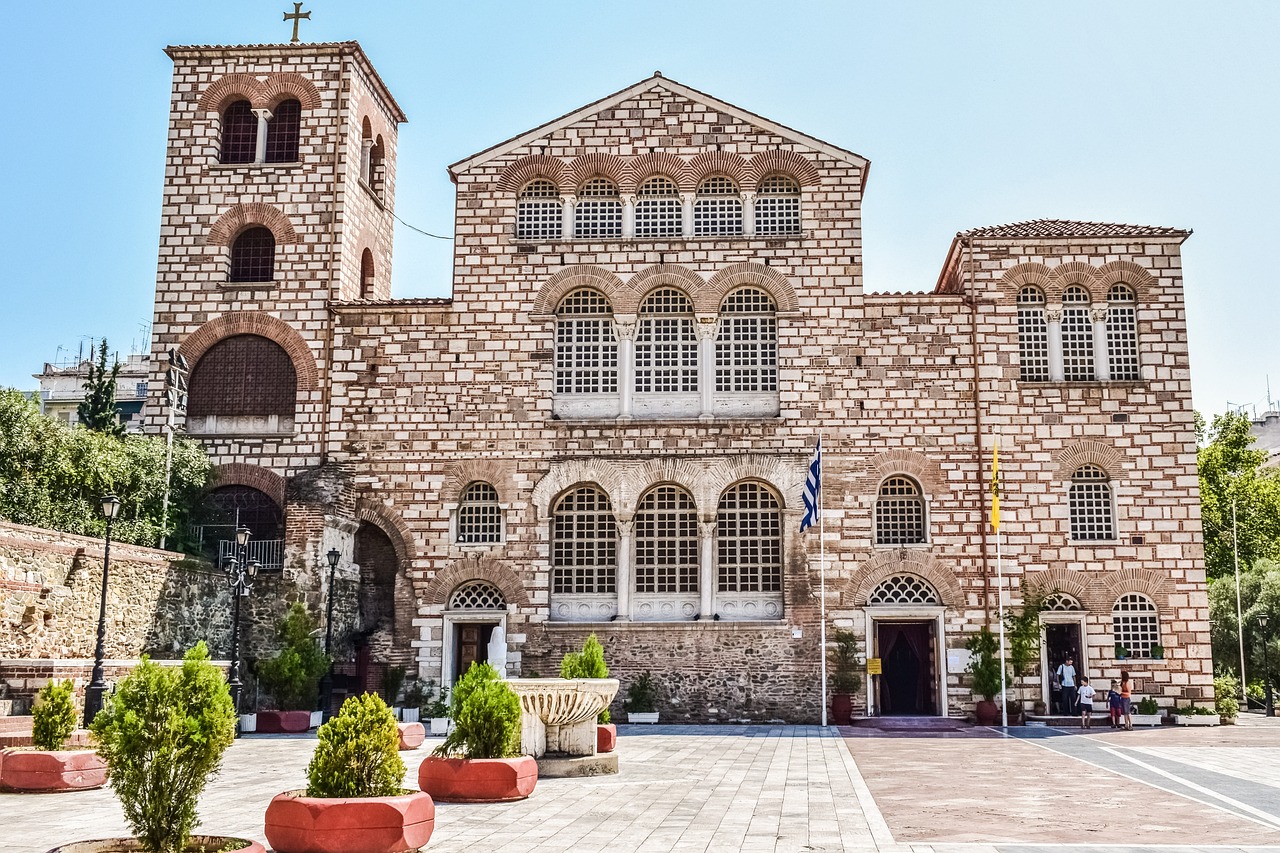
Intellectual Legacy
The of the Byzantine Empire is a treasure trove of knowledge that has profoundly influenced European intellectual history. Byzantine scholars played a crucial role in preserving and transmitting ancient Greek and Roman texts, safeguarding the wisdom of antiquity through turbulent times. Their dedication to scholarship and learning laid the groundwork for the Renaissance and the Enlightenment, ushering in eras of intellectual flourishing and innovation.
Byzantine libraries, such as the renowned Library of Constantinople, housed a vast collection of manuscripts, including works of philosophy, science, history, and literature. These repositories of knowledge served as beacons of learning, attracting scholars from across Europe who sought to access the ancient wisdom preserved within their walls.
One of the most significant contributions of Byzantine intellectuals was the translation of Greek and Roman texts into Latin and vernacular languages. This process of translation not only made classical works more accessible to a wider audience but also facilitated the dissemination of ideas that would shape the intellectual landscape of Europe for centuries to come.
Moreover, Byzantine scholars made significant advancements in fields such as medicine, astronomy, and mathematics, building upon the knowledge of their predecessors and laying the groundwork for future scientific developments. Their meticulous study and analysis of ancient texts paved the way for new discoveries and innovations that would revolutionize intellectual thought in Europe.
The legacy of Byzantine intellectuals extends beyond the realm of academia, influencing the development of European languages and literature. The use of Byzantine Greek as a literary and scholarly language left an indelible mark on European linguistic traditions, shaping the evolution of language and literature across the continent.
In conclusion, the of the Byzantine Empire stands as a testament to the enduring power of knowledge and scholarship. By preserving and transmitting the wisdom of the past, Byzantine intellectuals paved the way for a new era of intellectual exploration and discovery, leaving an indelible mark on European culture and thought.

Military Strategies
The military strategies employed by the Byzantine Empire played a crucial role in shaping European warfare during the medieval period. One of the most notable contributions was the development and utilization of Greek fire, a highly effective incendiary weapon that could be used in naval battles to devastating effect. The Byzantines also excelled in defensive fortifications, with their fortified cities serving as formidable obstacles for would-be invaders.
Furthermore, the Byzantine Empire was known for its strategic diplomacy, often forming alliances and playing rival powers against each other to maintain its position in a volatile geopolitical landscape. This approach allowed the Byzantines to navigate complex political situations and secure their borders against external threats.
Moreover, the Byzantine military prioritized intelligence gathering and espionage, employing spies and informants to gather information on enemy movements and intentions. This emphasis on intelligence gathering gave the Byzantines a strategic advantage in many conflicts, allowing them to anticipate and counter enemy actions effectively.
Additionally, the Byzantine military was known for its adaptability and innovation, constantly evolving its tactics and strategies in response to changing battlefield conditions. This flexibility enabled the Byzantines to overcome challenges and outmaneuver their opponents, ensuring their military dominance in the region.

Language and Literature
Language and literature played a pivotal role in the Byzantine Empire's legacy, leaving a lasting impact on European culture and intellectual development. Byzantine Greek, as the language of administration and scholarship, influenced the evolution of European languages and literary traditions. The translation of Byzantine texts into Latin and vernacular languages broadened access to classical knowledge, fostering a rich literary exchange across borders and centuries.
Moreover, Byzantine literature encompassed a wide range of genres, from historical chronicles and theological treatises to epic poetry and philosophical works. This diverse literary heritage not only enriched European literary traditions but also provided valuable insights into the intellectual pursuits of the Byzantine era.
Byzantine scholars, known for their linguistic expertise and scholarly rigor, played a crucial role in preserving and transmitting ancient Greek and Roman texts to Europe. Their translations and commentaries served as a bridge between the classical past and the medieval present, laying the groundwork for the Renaissance and the flourishing of humanist thought in Europe.
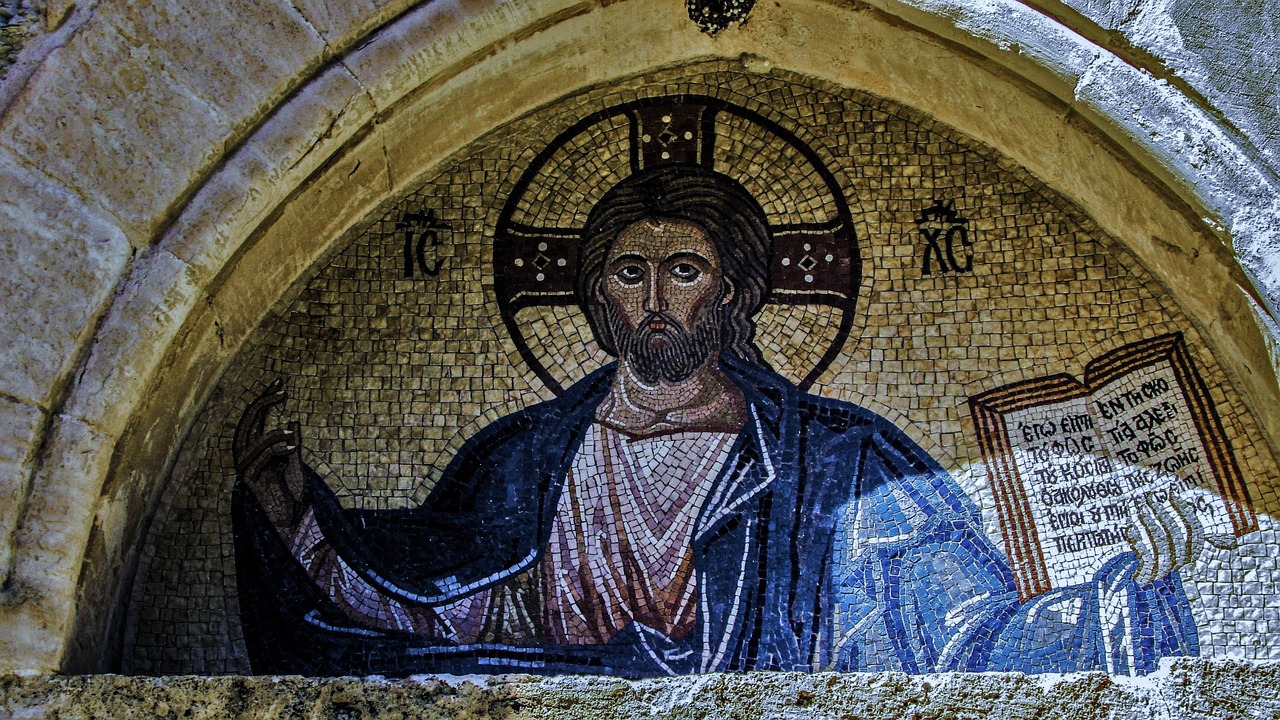
Cultural Exchange
The Byzantine Empire's influence on Europe went beyond politics and religion; it served as a vibrant hub of cultural exchange. Imagine a bustling marketplace where ideas, traditions, and innovations from East and West converged, creating a melting pot of diversity. This cultural crossroads facilitated the exchange of knowledge, art, music, cuisine, and technology, enriching the tapestry of European society.
Through trade routes and diplomatic relations, the Byzantine Empire connected Europe with Asia and Africa, fostering a dynamic interchange of customs and practices. This cultural fusion not only broadened Europeans' perspectives but also sparked creativity and innovation in various fields. For example, the introduction of new spices, textiles, and architectural styles from the Byzantine Empire infused European culture with exotic flavors and designs, transforming the aesthetic landscape.
Moreover, the Byzantine Empire's role as a center of learning attracted scholars, artists, and merchants from distant lands, creating a vibrant intellectual community. This intellectual exchange led to the translation of ancient texts, the sharing of scientific discoveries, and the adaptation of philosophical ideas, laying the groundwork for Europe's intellectual renaissance.
Artistic expressions flourished as Byzantine artists shared their techniques and themes with European counterparts, influencing the evolution of artistic styles across the continent. The intricate mosaics, elaborate frescoes, and ornate jewelry crafted in the Byzantine tradition captivated European audiences, inspiring a renaissance of creativity and craftsmanship.
In essence, the Byzantine Empire's cultural exchange with Europe was akin to a grand banquet where diverse flavors and aromas blended harmoniously, creating a feast for the senses and the mind. This cultural legacy continues to resonate in European art, architecture, cuisine, and intellectual pursuits, reminding us of the enduring impact of cross-cultural fertilization.
Frequently Asked Questions
- What is the significance of Byzantine art on European culture?
Byzantine art, known for its intricate mosaics and religious iconography, greatly influenced European artists during the Middle Ages and Renaissance. It played a crucial role in shaping Western artistic traditions.
- How did the Byzantine Empire impact European architecture?
The architectural innovations of the Byzantine Empire, such as the iconic domed Hagia Sophia, influenced the design of churches and buildings across Europe, leaving a lasting mark on the continent's architectural landscape.
- What role did the Byzantine Empire play in the spread of Christianity in Europe?
As a center of Orthodox Christianity, the Byzantine Empire significantly influenced the spread of Christianity in Europe, shaping religious practices, beliefs, and rituals throughout the continent.
- How did Byzantine scholars contribute to the intellectual legacy of Europe?
Byzantine scholars played a crucial role in preserving and transmitting ancient Greek and Roman knowledge to Europe, laying the foundation for the Renaissance and the intellectual flourishing of the European Enlightenment.
- What was the impact of Byzantine trade networks on European commerce?
Byzantine trade networks and economic policies had a profound impact on European commerce, contributing to the growth of trade routes and economic exchanges that shaped Europe's economic development.










